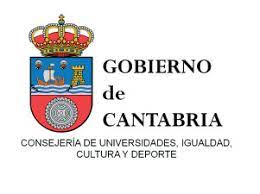Contemporary Cantabria. Writings on Political History, Science, and Literature
Keywords:
Cantabria, José María de Pereda, Marcelino Menéndez Pelayo, Amós de Escalante, Enrique Diego MadrazoSynopsis
Contemporary Cantabria. Writings on Political History, Science, and Literature offers the interested reader a collection of texts resulting from the research Manuel Suárez Cortina has conducted on the history of our region throughout his career. This collection of inquiries explores the basic elements—economic, social, political, and cultural—that have characterized the region from its formation as a province in the early decades of the 19th century to the beginning of the 21st century, when the original "Montaña" region became the Autonomous Community of Cantabria.
The book is divided into three sections. The first, "Cantabria in Contemporary Times," offers a summarized account of the history of Cantabria throughout the 19th and 20th centuries; the second, "The Regional Question: Historiography and Politics," examines the discourses on regional history and identity that have developed in the region. The third, "Politics, Science, and Literature," explores the cultural and scientific dimensions and their relationship to politics through an analysis of the work of four authors: José María de Pereda, Amós de Escalante, Marcelino Menéndez Pelayo, and Enrique Diego Madrazo. Eight chapters thus characterize the most salient features of Cantabrian history in the 19th and 20th centuries.
Therefore, the book does not aim to constitute a history of Cantabria as such, but rather to examine the socioeconomic, cultural, and political frameworks within which the region has developed, from the noble world of the 18th century to the postmodern society of today. Two centuries of history with profound transformations that, taken together, can be described as a long journey toward modernity. From the transition from a rural and noble inland society and its confrontation with the responsibilities of the Santander merchant bourgeoisie at the beginning of the 19th century to a region committed to its future within the framework of an era known as "globalization."






